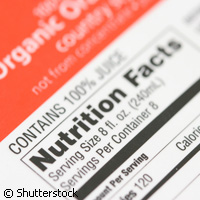EU project probes effectiveness of healthy eating campaigns
European policymakers continue to promote and encourage healthy eating in EU Member States. But despite the hard effort, obesity continues to play havoc across the region, fuelling healthcare costs and triggering losses in productivity. So the question is, how effective are the national policy campaigns launched by the Member States? The EATWELL ('Interventions to promote healthy eating habits: evaluation and recommendations') project is investigating and identifying the successes, failures and uncertainties of these campaigns. Latest results - presented at the 11th Federation of European Nutrition Societies (FENS), European Nutrition Conference in Madrid, Spain on 27 October - are in and they have the potential to contribute to the decision-making process for developing winning eating policy intervention campaigns. EATWELL is backed with EUR 2.51 million under the 'Food, agriculture and fisheries, and biotechnology' (KBBE) Theme of the EU's Seventh Framework Programme (FP7). 'EATWELL will recommend appropriate interventions for Member States and the EU based on information gained from evaluations of policy interventions and their acceptability to stakeholders, as well as lessons taken from the private sector,' explains Professor Bruce Traill of the University of Reading in the United Kingdom, the coordinating body of the project. As part of the study, the EATWELL consortium has evaluated healthy eating policy actions, interviewed policymakers and industry actors, surveyed European citizens and carried out new data analysis. The team has identified more than 100 policy interventions in Europe, of which two are broad-based categories. Specifically, one targets support for more informed choice by offering information or education, such as the nutrition labelling campaign in the United Kingdom, and the other aims at changing the market environment by adjusting prices or food availability, namely giving vouchers to disadvantaged consumers or slapping taxes on high saturated fatty foods. The EATWELL partners have observed a trend towards information and education actions that are less controversial compared to market-level interventions, the European Food Information Council (EUFIC) says. It should be noted that existing data show that information and education measures are not bearing a lot of fruit. While attitudes and knowledge have changed for the better in recent years, behaviour has remained stagnant. A number of policies are not readily available either, such as nutrition information on menus, nutrition-related food standards and fiscal measures like fat taxes. The latter are just beginning to emerge in Europe. The good news is that the impact interventions have on people's lives is considerable. But, as Professor Shankar from the University of Reading says: 'When impacts on the public's behaviour or consumption are actually realised, healthy-eating policies are often highly cost-effective interventions.' The team says a key component of the project has been to evaluate the acceptability of policies for different population sub-groups, like parents versus non-parents or education level, because only if people accept interventions can public health interventions be successful. They have also identified success factors such as low-cost public sector marketing. The project partners say building trust in public policy institutions, and maintaining consistent and cooperative efforts are vital if long-term success is to be achieved. The EATWELL consortium is made up of experts from Belgium, Denmark, Italy, Poland, the United Kingdom and the United States.For more information, please visit:EATWELL:http://eatwellproject.eu/en/Home/Welcome/European Food Information Council (EUFIC):http://www.eufic.org/FP7 KBBE:http://cordis.europa.eu/fp7/kbbe/home_en.html
Countries
Belgium, Denmark, Italy, Poland, United Kingdom, United States



